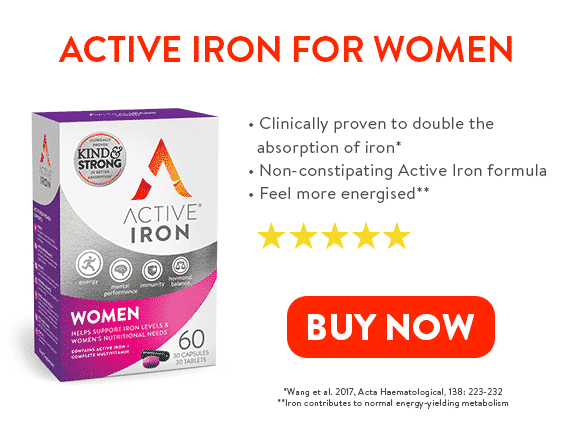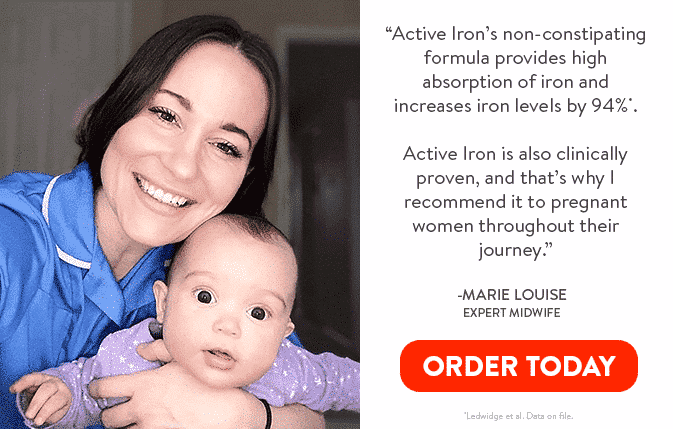After nine months of planning for your baby’s arrival, the time to meet your baby has finally arrived. Your body has done an amazing job throughout the physical changes of pregnancy and childbirth. Now, a healthy diet and support from high-quality postnatal vitamins can ensure that your body is nutritionally replenished, supported, and prepared for the upcoming months caring for yourself and your baby.
If the topic of postnatal health feels a little blurry, we’re here to clear up the subject. Keep reading for a full and thorough understanding of health in this new chapter, and how postnatal vitamins can offer that extra nutritional support if you need a helping hand.
The importance of postnatal vitamins
During pregnancy, your body uses up its storage of several important nutrients, like folate, calcium, and vitamin B6. After you’ve given birth, your body can gather nutrients from foods high in those nutrients or supplementation, and replenish its storage as you recover. If you’re breastfeeding your baby, your body and baby will require an even higher amount of several crucial nutrients after you’ve given birth.
Certain nutrients can help stave off common postpartum symptoms among new mothers. For example, adequate daily amounts of certain nutrients—like iron, vitamin D, and the B vitamins — can help energy levels and reduce fatigue. Below, we will dive into the details more and help to make sure you and your baby are fully supported in these upcoming months.
Why should you consider taking vitamins after giving birth?
As a mother of a newborn, you’ll spend a lot of time caring for and bonding with your baby. Sometimes the time it takes to focus on your little one’s needs can crowd out other tasks, like making balanced and nutrient-dense meals for yourself each day.
To ensure they fully replenish their nutrient stores and reach their daily nutrient needs, some mothers may choose to supplement their dietary intake of certain critical nutrients in their postpartum months. Next, we’ll explain how these nutrients can support new mothers so you can decide whether supplementation is right for you.
Best postpartum vitamins
Certain nutrients can give you and your little one the physical support you need and the energy you deserve so that you can enjoy a healthy beginning together. Below are the four most important nutrients for postpartum mothers.
Iron: Replenishing the iron used during childbirth will benefit both you and your baby. Iron helps to preserve many vital functions in your body, like energy, immune strength, cognitive function and the formation of haemoglobin and red blood cells. Breastfeeding mothers also provide their babies with the iron needed for their growth & development.
Vitamin D: Vitamin D offers support for our immune systems, normal bones, and teeth and with the protection of cell from oxidative stress.
Docosahexaenoic Acid (DHA): This omega-3 fatty acid helps mothers’ and babies’ brain and vision health and development.
Vitamin B12: The many benefits of vitamin B12 will bless both mother and baby. B12 allows our bodies to produce normal red blood cells, and contributes to energy production, and normal cell division.
Best postnatal vitamins for breastfeeding moms
To support their babies’ rapid growth and development, breastfeeding mothers require an even higher dose of many nutrients than they needed during pregnancy. Creating milk for your baby requires significant amounts of calcium, zinc, magnesium, docosahexaenoic acid (DHA), and vitamins A, B1, B2, B6, B12, and D. In addition to nurturing your own body, these nutrients will aid your baby throughout its infancy.
Postnatal vitamins if you are not breastfeeding
Mothers who choose not to breastfeed will still benefit from taking postnatal vitamins in the months following pregnancy. Adequate nutrients will help to support you as you care for yourself and your little one. A supplement in addition to a well-balanced and healthy diet can ensure that your nutrient stores are fully restocked.
Hair loss after pregnancy treatment and vitamins
Some women experience hair loss during the postpartum period. If you are concerned about your hair thinning, boosting certain nutrients can help. Copper, selenium and zinc make an impact on the health and growth of our hair and nails, and biotin and zinc support healthy skin. Consider adding them to your morning supplements to keep those lovely locks strong.
Protecting Your Postpartum Mental Health
If you’re experiencing some post-birth baby blues, you’re not alone. Nearly 80 percent of mothers report feeling down the week or two after their child is born. A newborn usually comes along with little sleep, some anxiety, and less structure or schedule to your days. These physical, chemical, and lifestyle changes can reasonably affect new mothers’ moods and emotions.
If you have or are concerned about experiencing postpartum sadness or depression, please contact your doctor or midwife or other healthcare professional. View this list of useful contacts for support.
Simplify Your Postnatal Supplementation
Relational support, talking with a trusted doctor, and giving yourself time to adjust are each important in the months following pregnancy and the big event of your child’s birth. Helpful nutrients can also help ease your transition and give you the physical boost you may need as a new mom. Keep up your amazing work and lean on postpartum supplements for that extra support.



